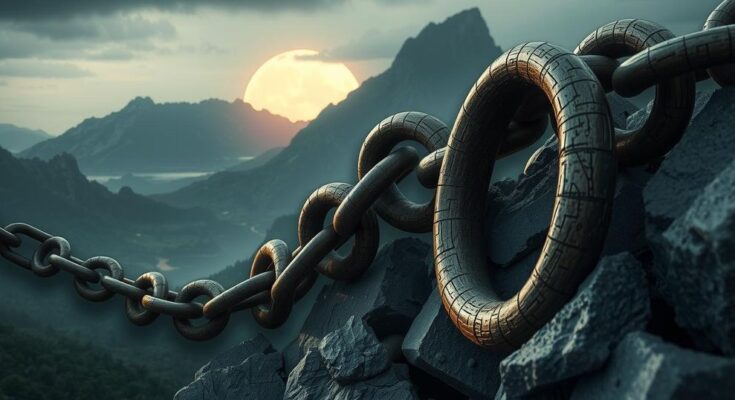The ongoing conflict in the eastern Democratic Republic of Congo is primarily driven by control over valuable mineral resources and historical ethnic tensions following the Rwandan genocide. The M23 rebel group, largely composed of ethnic Tutsis, has resumed fighting, claiming rights protection, while accusations of Rwandan military support complicate the situation further. The region’s stability remains elusive due to these interconnected issues.
The conflict in the eastern Democratic Republic of Congo (DRC) has persisted for over 30 years, catalyzed by the aftermath of the 1994 Rwandan genocide. This region is rich in valuable minerals, attracting the attention of various armed groups vying for control and power. In the 1990s, this struggle led to devastating conflicts, often referred to as Africa’s World Wars, resulting in the deaths of millions.
Currently, the M23 rebel group is advancing rapidly in the region, having recently entered Goma, a major city with over a million residents. Goma serves as a crucial hub for trade and transport, located near mining towns that produce essential metals like gold, tin, and coltan. The M23 claims to control Goma, while the Congolese government asserts that its military maintains control over various strategic locations.
The M23 primarily consists of ethnic Tutsis, who argue that they have taken up arms to safeguard their community’s rights. They assert that past peace agreements, including one signed on March 23, 2009, have not been honored. The group was initially formed in 2012 after gaining territory and capturing Goma, actions which drew international condemnation due to allegations of war crimes.
Despite being defeated and integrated into the Congolese army following a multinational intervention, the M23 resurfaced in 2021, citing unfulfilled promises of protection for Tutsis as their motivation. The tumultuous dynamics continue as Rwanda has been accused of supporting the M23, even as it denies these allegations, claiming that it is being unjustly implicated.
The roots of the ongoing conflict can be traced back to the Rwandan genocide, which drove approximately one million Hutus into the DRC, igniting ethnic tensions, particularly for the marginalized Tutsi community in the region. Rwanda has intervened militarily in the DRC multiple times, motivated by the presence of Hutu groups, including the notorious Democratic Forces for the Liberation of Rwanda (FDLR).
Although Rwanda’s government argues that FDLR poses a significant threat to its national security, accusations arise that Rwanda exploits the conflict in the DRC to access the region’s mineral wealth. The complexities of these relationships and the continued hostilities highlight a dire need for resolution in the eastern DRC.
The Democratic Republic of Congo has faced ongoing conflict due to its wealth in natural resources and its historical ties to neighboring Rwanda, particularly after the 1994 genocide. This conflict involves not only local groups but also the influence of foreign nations, complicating the region’s stability and security. The emergence of armed groups like M23 reflects the ethnic tensions exacerbated by surrounding geopolitical interests and the longstanding distrust between communities.
The conflict in eastern DRC, driven by the M23’s resurgence and Rwanda’s involvement, showcases the deep-rooted ethnic tensions and international dynamics stemming from historical events like the Rwandan genocide. The struggle for control over the region’s mineral wealth continues to fuel violence, prompting urgent calls for dialogue and resolution to pave the way for sustainable peace for the communities affected.
Original Source: www.bbc.com




